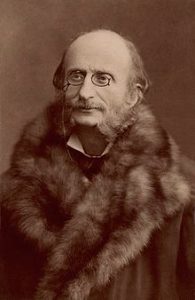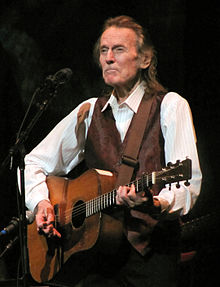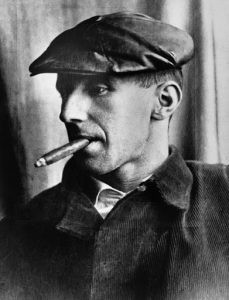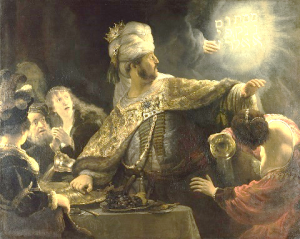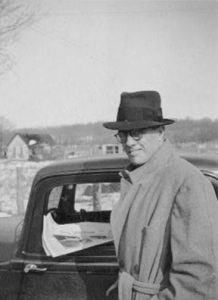by Paul Robert Thomas
- Recorded Criteria Studios, Miami, Jan 1997
- Released 30 Sept 1997 on Bob Dylan’s 30th studio album Time Out of Mind
- Running time 16.31 (his longest track until recently surpassed by Murder Most Foul which is 16.54)
- Performed 9 times live
Musicians:
- Bob Dylan: vocals, guitar
- Daniel Lanois: guitar
- Augie Meyers: organ
- Jim Dickinson: keyboards
- Tony Garnier: Bass
- Tony Mangurian: percussion, drums
Studio:
- Produced by: Daniel Lanois is association with Jack Frost Productions (Bob Dylan)
- Sound Engineer: Mark Howard
The following article is the result of my original hearing of Highlands and of subsequently playing it a number of times. The article has been updated where necessary but for the most part it has been left as originally written and is by no means a comprehensive interpretation of the song but I merely have commented on a number of the lines that jumped out at me and I am sure there are more in depth analysis of this song but hopefully I have approached it from a different angle, interpreting some of the songs’ content for their Biblical meaning as a student of both Christian and Judaic theology and Kabbalah.
Dylan was born on 24 May 1941 in Duluth, Minnesota on the shores of Lake Superior and moved to Hibbing when he was about 7 years old. This area is in the Great Lakes region of North America in the ‘North Country’, (‘Rainy days on the Great Lakes, walkin’ the hills of old Duluth’, Something There is About You from Planet Waves). Part of New York State is known as The Highlands or The North Country that runs far north up to the Great Lakes and the Canadian border.
In the first verse of Highlands Dylan sings ‘Where the Aberdeen waters flow’. Aberdeen is in the ‘North Country’ about 150 miles west of St. Paul, Minnesota (which, incidentally, has a Jewish neighbourhood called ‘Highland Park’) and some 200 miles south-west of Duluth. It stands near the River James, which flows south to Sioux City (Dylan lived, in his youth, in Sioux Falls), where it joins the Missouri River before flowing down to New Orleans, Louisiana and the Mississippi Delta, taking a similar route to ‘Highway 61’.
Aberdeen, Scotland is not in fact in The Highlands but sits in the Grampians. The Highlands are in fact, in the northern peninsula of Scotland extending from the north-west of Loch Ness and Loch Linnhe.
Verse 1, together with 4 similar verses, which one could argue are the chorus, is seemingly drawn from the 1790 poem by Robert Burns, ‘My Heart’s in The Highlands’’.
‘My Heart’s in The Highlands, my heart’s not there,
My Heart’s in The Highlands, a-chasing the deer,
Chasing the wild deer, and following the roe,
My Heart’s in The Highlands, wherever I go’.
Dylan borrowed a rift and a country blues lilt from Charlie Patton in Highlands (1), and Dylan recently said, ‘It’s just a simple Blues that can go in one direction or another.’ (2)
The last 2 lines of verse 1 of Dylan’s Highlands, ‘I’m going to go there when I feel good enough to go’, is predicated on the assumption that The Highlands represents his paradisaical Utopia. Utopia is that place where some of us hope to reach, spiritually and/or physically, Then these two lines apparently imply, and correctly so according to Christian Theology, that one can only ‘get there’ when one has fully repented one’s past sins and shown oneself to be good and worth of such divine elevation. Such is the task he has set himself in T.O.O.M.’s ‘Tryin’ To Get To Heaven.’
After the ethereality of verse 1, the reality of this song starts to bite in verse 2, ‘Windows were shaking all night in my dreams.’ Dylan’s windows are his worldly perceptions, which are being shaken. He ‘Woke up this morning’ (an opening line to many a Blues song and used by Dylan himself as the opening lines to On The Road Again, George Jackson and Blood in my Eyes (his Mississippi Sheiks cover), and he saw the usual front page headlines depicting the world’s troubles. He feels he’s living in a rat race, he’s entrapped by his own fame, in the same old cage.
In verse 3, he tells us that he ‘doesn’t want nothing from anyone’, he surely has amassed all the wealth he needs, as well as gaining knowledge and experience, even wisdom, maybe he’s not even looking for love any more as he told us on the same album, he’s sick of love! Is his mention of Blondes merely coincidental, since Highlands (16.31) was for many years his longest running song since Sad Eyed Lady of The Lowlands (11.22) from his 1966 album Blonde On Blonde (B.O.B.)? (T.O.O.M. B.O.B. Highlands, Lowlands). In any event, there sure is a surefire way to tell a fake blonde from a real blonde, or maybe that doesn’t even interest him anymore? He is obviously finding it hard to make sense of this fast moving world which remains a ‘mystery’ to him, and he feels like a ‘prisoner’ from another era, and he wishes that the ‘clock’ could be turned back to his youth, perhaps to his Blonde On Blonde period?
In verse 4 he sings, ‘That’s where I’ll be when I get called home’ (Thomas Wolfe said, ‘You can’t go home again’), and is ‘home’ Heaven or literally is it the place of his birth and youth? For in Not Dark Yet on T.O.O.M. he sings ‘I was born here and I’ll die here’, that is he will die at the same place where he was born (Jesus died in Jerusalem, a stone’s throw from where he was born in the Holy Land). Being born a Jew, most Jews (in fact all religious Jews and some Christians) feel it incumbent upon themselves to be buried in the Holy Land, in Jerusalem, from that place where the Messiah will rise again. Incidentally, one of Dylan’s earliest influences, Jack Kerouac, was born and died in Lowell, Massachusetts, his graveside was the subject of a major scene with Dylan and Allen Ginsberg in Renaldo And Clara. ‘The wind whispers to the Buck-Eyed trees that rhyme’ – Buck-Eyed trees are indigenous to the USA and not to Scotland, another clue that the song isn’t set in The Highlands of Scotland. ‘I can only get there one step at a time’, reminds one of Forever Young, ‘’ which is drawn from the Biblical story of Jacob’s Ladder, ‘And he dreamed, and behold a ladder set upon the earth, and the top of it reached to Heaven….’ (Genesis 28:12). (3)
In verse 5, he’s ‘listening to Neil Young’, who is Canadian from Toronto, which geographically, is actually south of Duluth and is just across the Northern US border, and he needs to turn up the sound (I saw Dylan and Neil Young recently at Hyde Park and didn’t think that Neil Young could get his music any louder) to hear the ‘message’, but the message, the truth, must be quietly stated as there are always those who want to suppress it and don’t want it heard, ‘Someone’s always yellin’ “Turn it down“. Dylan again expresses that he’s just going through life’s motions, drifting aimlessly through ‘scenes’ that he had already played before. He then sings, ‘What in the devil in the world could it all possibly mean’? The devil, Satan, is the god of this world, as he told us a number of times during his born-again-Christian stage speeches, ….’Well the devil owns this world, he’s called the god of this world’, and, ‘…Satan’s called the god of this world’. (4)
By verse 6, he’s feeling that ‘insanity is smashing up against my soul’. How many great artists did go insane, or managed to destroy themselves before that happened? He’s obviously not on a ‘roll’ and hasn’t really been for some years, but maybe T.O.O.M. will start things rolling again? Certainly, the 1998 Grammy Awards seem to confirm this expectancy. Upon winning the Album of the Year award for T.O.O.M., Dylan had this to say about Buddy Holly’s influence on him and upon the album, ‘I just wanted to say that at one time, when I was about 16 or 17 years old, I went to see Buddy Holly play at Duluth National Guard Armory, and I was three feet away from him, and he looked at me, and I just have some kind of feeling that he was, I don’t know how or why, but I know, he was with us all the time when we were making this record in some kind of way….’ (Buddy you’ll roll no more’ – Standing in the Doorway, T.O.O.M.) It was actually on 31/1/59 when he saw him play, and three days later on 3/2/59, Buddy Holly was a passenger in a light aircraft that took off from Mason City, Iowa, about 100 miles west of Minneapolis, en route to play concerts at Fargo, North Dakota, about 50 miles west of Aberdeen. It crashed in a snow storm a few moments after take-off killing all those on board, the young inexperienced pilot, the ‘Big Bopper’ (JP Richardson), and Richie Valens, who had had a hit with La Bamba, the tune of which Dylan’s Like A Rolling Stone is partly based upon, (5) Dylan was to claim. ‘Buddy Holly was a poet way ahead of his time. Read his story. I played with Buddy Holly in North Dakota, South Dakota, ballrooms, youth dances….’ (6) Dylan was to play piano for Bobby Vee and The Shadows in Fargo, North Dakota as they were the replacement band for Buddy Holly, who never made it to the concerts. Part of why Dylan played on Carolyn Hester’s Columbia album was that he ‘was impressed because she had briefly known and deeply admired Buddy Holly’. (7) This harmonica playing aldum performance of Dylan led directly to John Hammond signing him up for Columbia Records. Comparisons have been made between Dylan and Charles Hardin’ Holly and, ‘in the end, perhaps the best way to encompass what Dylan has done via Holly is to say that Dylan really has replaced him. (8)
He tells us that he has no conscience, which is perhaps hard to believe, and the ‘I just might blow my top’ line reminds me of the line from Under The Red Sky’s TV Talkin’ Song about Elvis and ‘shooting the damn thing out’. ‘A conscience can be trained to recognise good and evil, but its action is involuntary, it is that faculty with us which decides as to the moral quality of our thoughts, words and acts.’ (9) Is a conscience really so useless to him that he would pawn it? Although pawning does imply that it can be retrieved at a later date.
In verse 7, Dylan sings of a ‘beautiful lake of The Black Swan.’ There is no such lake in Scotland, where in any event, lakes are called ‘Lochs’, although the Great Lakes area of North America is splattered with 100’s of lakes, one of the minor lakes could feasibly be called The Black Swan but more probably, the reference is to Odette who was turned into a black Swan in Tchiakovski’s Swan Lake. ‘The chariots that swing down low’ reminds one of the Spiritual song covered by Elvis, Swing Down Sweet Chariot, and of the Biblical passages, ‘…who maketh the clouds his chariot’ (Psalms 104:3), and, ‘in the second chariot, black horses …. The black horses which are therein to go forth into the North Country….’ (Zechariah 5:2&6). By the end of this verse Dylan views The Highlands as the only place left to go, having lost all hope in this world.
Verses 8-15 takes us to where the song is actually taking place in Boston, Massachusetts, that place where ‘The Yanks’ took a stand against ‘The Brits’ and where from Paul Revere started his famous horse ride (as mentioned by Dylan in Tombstone Blues), and it is from there that Dylan is day-dreaming of The Highlands in a restaurant whose name an exact location is not given but could well be in the ‘Faneuil Hall Wharf’ district of Boston, famous for its eateries. The waitress scene is reminiscent of the scene from Blood on The Tracks song Tangled Up in Blue which took place then in New Orleans, although he was ‘heading up to the east coast’ then. He reveals his current state of indecisiveness in not knowing what he really wants to order, the reason that the waitress probably tells him that ‘you most probably want hard boiled eggs’ is that he could be dressed in his usual black attire as a person in mourning would traditionally wear, for hard boiled eggs are a symbol of Jewish mourning and are part of the traditional Passover meal symbolizing the destructions of the Temples in Jerusalem in 586 BCE and 70 CE, and are also to remind one that the Third Temple, despite the creation of the State of Israel, has yet to be built by The Messiah who, in Judaic tradition, has yet to come. Interestingly enough, and bearing in mind Dylan’s acknowledged Judaic and Christian beliefs, Passover is also the time that Jesus Christ was crucified and He himself partook of the Passover meal, known as The Last Supper and we know he’s at the restaurant in a holiday period as he says, ‘it must be a holiday, there’s nobody around’. In any event, the waitress tells Dylan that they haven’t got any hard boiled eggs, it obviously was not the right time to come, it wasn’t Passover. He describes the waitress as having ‘long white shiny legs’, which reminds one of New Pony from Street Legal, ‘She got great big hind legs’, and this song branded him as being an anti-feminist, as did his ‘can you cook and sew’ line from Is Your Love in Vain’? From the same album. Presumably, Dylan’s ideals of women are not in keeping with contemporary trends of thinking, which is maybe why he doesn’t really notice this modern feminist waitress standing in front of him, as he says, ‘I don’t do sketches from memory’, but then the waitress firmly lets him know that she in nobody’s frozen-in-time female image with her retort, ‘I’m right here in front of you, or haven’t you noticed’? She forces him into a verbal corner and he makes good his escape by confessing that he has read, not merely any female author, but an acclaimed feminist author such as Erica Jong! Perhaps he has even read her best selling book, ‘Fear of Flying’? He actually wrote and performed a song about another female author recorded in 1975 as a Desire outtake, Rita May. Whilst the waitress goes away to contemplate his response to her questioning, he slides out of his chair and steps into the now ‘busy street’, previously there was nobody around, so maybe some time has elapsed since he’s been in the restaurant.
In verse 15 (one of the choruses), the mention of ‘Arrows’ and ‘Bows’ reminds one of Jerusalem by William Blake, ‘Bring me my bow of burning gold, bring me my arrows of desire’. Dylan then repeats the monotonous life’s theme in verse 16, ‘Everyday is the same thing’ (Every Day was a hit for Buddy Holly). What ‘feels further away than ever before’? Is it complete happiness, is it salvation? Whatever it is, he hasn’t attained it yet and it seems obvious that he regrets this and perhaps it’s too late for him to reach or find this unattainable goal and maybe his past choices have left him alone and lonely which is dealt with in verse 17 where he watches as an outsider and at a distance, hetrosexual and happy ‘young people’ (repeated again in Love Sick) and he obviously feels conscious of his advanced years, of young people enjoying themselves and wearing ‘brightly coloured clothes drinking and dancing’ (he could have used ‘Gay’ coloured clothes here, it would have been appropriate, he used the word ‘Gay’ twice in Standing in the Doorway), for Dylan is renowned for his dark or back attire. Can he not ‘trade places with any of them in a minute’ just because he is the famous Bob Dylan and is trapped in his notoriety? He said recently of fame, ‘at a certain point, fame becomes a handicap, fame, being a celebrity, you’d like sometimes to be rid of it’. (10) An interviewer said, ‘In Highlands, he watches young people drinking and dancing and his voice grows hollow with sadness’ ‘I’d change places with any of them if I could’, to which Dylan replied, ‘I can’t help those feelings, I’m not going to try and make a false Pollyanna view. Why would I even want to? And I’m not going to deny them just because they might be a little dismal to look at. I try to let it speak for itself’. (11)
In verse 18, who is the ‘mangy dog’ (reminding one of One Too Many Mornings ‘Down the street the dogs are barking’) that he’s changing his direction of his life to avoid? Is A.J. Weberman back in business hounding him again? This actually brings to mind Robert Browning’s poem The Cardinal and the Dog, where the Cardinal lies on his death-bed and cries out loud to try to stop a ‘black dog of vast bigness, eyes flaming’ from jumping all over the sheets’. The lonely facet is repeated once again as he is talking to himself (in a monologue). Does he need a ‘full leather coat’ against the cold wind that’s blowing? A leather jacket used to be viewed as a ‘sold-out symbol’ when worn by artists such as Dylan. Is voting also a sign of having ‘sold out’? If so, what of performing for President Clinton at the Lincoln Memorial in 1993, or inviting Jimmy Carter back-stage during the 1974 tour (12), or performing for President Obama at the White House? Certainly permitting his Times They Are-A Changin song to be used in a TV advert and there are many other examples.
Recently in an interview, Dylan has stated, ‘I don’t have any problem in that field.’ (13)
The penultimate verse, verse 19, is as revealing as any other on this album, with its oft used pun by Dylan on ‘sun’ and ‘son’, ‘Jesus said I am the light that is above.’ (14) Jesus Christ is referred to as ‘The Sun of righteousness’ in Malachi 4:2, and as the ‘Son of man’ and the ‘Son of God’ at Revelation 1:13, 2:18, and Matthew 26:63, 27:43 & 27:54, and implies the Second Coming of Christ. The reason that He is ‘not like the Son that used to be’ is because at the Second Coming Christ will appear ‘not as a teacher but more as a king who wields His judgement like weapons for the punishment of the impious.’ His countenance was as the sun shineth in his strength’. (Revelation 1:16) (The Second Coming of Christ is depicted at Revelation 19:11-20:3). The party is over (the song The Party’s Over was covered by Willie Nelson), because the world will be destroyed (‘not by water but by fire next time’, God Knows and, ‘It’s unbelievable that time would finally come’, Unbelievable, Under The Red Sky), and, Dylan is certainly no mellorist, ‘there’s less and less to say’ for some may argue that unbelieving Man deserves his fate, for he could not change his evil ways. Dylan’s ‘got new eyes’, he’s viewing the coming events and the impending Apocalypse (Armageddon) which without doubt he believes will occur, although It’s Not Dark Yet, it sure is getting there, through the eyes of the author of The Book of The Revelation, St. John the Theologian, who wrote it after receiving a vision of Jesus Christ on the Greek island of Patmos. (15) ‘Everything looks far away’ because Dyaln has distanced and separated himself from non-believing mankind.
In the final verse, verse 20, ‘At the break of day’ reflects the warning to watch out for the Coming of Christ, at Mark 13:35, ‘Watch ye therefore, for ye know not when He cometh, at even, or at midnight, or at the cock crowing, or in the morning.’ ‘Over the hills and far away’ could refer to a late 17th Century English song of that name although it does remind me of the Christian Hymn, ‘There is a green hill far away without a city wall, where the dear Lord was crucified, He died to save us all’, ‘There is a Way’ could refer to The Way which is a term used for Jesus Christ at John 14:6, ‘Jesus saith unto him, I am the way, the truth and the life’, it is also the method of salvation, or doctrine of the gospel’. (Acts 19:9) (16)
The album’s title of Time Out of Mind reflects the Biblical promise at Revelation 10:6 concerning New Jerusalem and The Second Coming of Jesus Christ’, when, ‘Time shall be no more’ and of course it appears in Act 1, scene 1 from Romeo and Juliet.
All in all, I find Highlands to be a sad song full of regret, about one unable to come to terms with old age. At his age it brings home all the things he has failed to achieve or has done wrongly and it reveals him to be lonely, aloof and full of regrets and seems a million miles from his ‘I accept chaos’ declaration from the cover of Bringing It All Back Home and seems to epitomize the antithesis of Desolation Row (the title possible drawn from Jack Kerouac’s poem Desolation Peak), although a line from that song does seem to encapsulate Dylan’s apparent present state of well-being, ‘When you asked me how I was doing, was that some kind of joke’?
There is humour present in this song, but it is superficial and doesn’t make you smile from within. On one hand, I find it hard to believe that this is really how Dylan views this world, but on the other hand, if one rally did open one’s eyes, or ‘have new eyes’, and see things how they really are and not as we pretend they are, perhaps we too would be looking for the exit we are all getting nearer to each passing day and certainly Dylan felt he’d came close with the heart scare he had in May 1997 after T.O.O.M. was recorded, suffering from histoplasmosis that had him saying, ‘I really thought I’d be seeing Elvis soon’. The album is resplendent with other gloomy songs or songs of regret such as Not Dark Yet, Tryin’ To Get To Heaven, Love Sick, Standing in the Doorway, Can’t Wait, Cold Irons Bound. Dylan uses not T.S. Eliot’s The Waste Land that he used as the basis for Desolation Row but the poet Robert Burns with his romantic verses of ‘chasing wild deer’ and ‘following the roe,’ and Dylan has used such poetic writings in previous albums such as Nashville Skyline and Self Portrait, I have in mind Belle Isle, and Highlands wouldn’t have been out of place on an album such as Self Portrait and without doubt, Highlands is a timeless piece of work.
Making it to Heaven as a ‘Prodigal Son,’ a repentant sinner, seems to be his only solace in this world.
Notes
(1) Jon Pareles. New York Times Interview. 29/9/97
(2) Metropole Hotel Interviews, London. 4/10/97
(3) All Biblical references are drawn from The Holy Bible, King James version, New York: Ivy Books. 1991
(4) Saved! The Gospel Speeches, compiled by Clinton Heylin, New York: Hanuman Books. 1995
(5) Paul Williams, Bob Dylan Performing Artist 1960-1973, London: Omnibus Press. 1994
(6) Robert Shelton, No Direction Home, London:New English Library. 1986
(7) Robert Shelton, No Direction Home, London:New English Library. 1986
(8) Michael Gray, Song and Dance Man, London: Abacus Books. 1972
(9) Alexander Cruden, Cruden’s Concordance to the Bible, Cambridge: Lutterworth Press. 1977
(10) Rabbi Haim Halevy, To Be A Jew, New York: Basic Books. 1971
(11) Pareles, New York Times Interview. 29/9/97
(12) Levon Helm, This Wheel’s on Fire, London: Plexus Publishing. 1994
(13) Metropole Hotel Interviews, London. 4/10/97
(14) The Gospel According to St. Thomas, Alaska: Messianic Brotherhood. 1982
(15) Archbishop Averky Taushev, The Apocalypse, Alaska: St. Herman Brotherhood. 1995
(16) Alexander Cruden, Cruden’s Concordance to the Bible, Cambridge: Lutterworth Press. 1977
The Lyrics: Highlands
Well my heart's in The Highlands, gentle and fair
Honeysuckle blooming in the wildwood air
Bluebells blazing where the Aberdeen waters flow
Well my heart's in The Highlands
I'm gonna go there when I feel good enough to go
Windows were shaking all night in my dreams
Everything was exactly the way that it seems
Woke up this mornin' and I looked at the same old page
Same old rat race, life in the same old cage
I don't want nothin' from anyone, ain't that much to take
Wouldn't know the difference between a real blonde and a fake
Feel like a prisoner in a world of mystery
I wish someone'd come and push back the clock for me
Well my heart's in The Highlands wherever I roam
That's where I'll be when I get called home
The wind it whispers to the buckeye trees of rhyme
Well, my heart's in The Highlands
I can only get there one step at a time
I'm listening to Neil Young, I gotta turn up the sound
Someone's always yellin' "Turn it down"
Feel like I'm driftin', driftin' from scene to scene
I'm wonderin' what in the devil could it all possibly mean
Insanity is smashin' up against my soul
You could say I was on anything but a roll
If I had a conscience, well I just might blow my top
What would I do with it anyway, maybe take it to the pawn shop?
My heart's in The Highlands at the break of dawn
By the beautiful lake of the Black Swan
Big white clouds like chariots that swing down low
Well my heart's in The Highlands, only place left to go
I'm in Boston town in some restaurant
I got no idea what I want
Or maybe I do but I'm just really not sure
Waitress comes over, nobody in the place but me and her
Well it must be a holiday, there's nobody around
She studies me closely as I sit down
She got a pretty face and long white shiny legs
I said "Tell me what I want"
She say "You probably want hard boiled eggs"
I said "That's right, bring me some"
She says "We ain't got any, you picked the wrong time to come"
Then she says "I know you're an artist, draw a picture of me"
I said "I would if I could but
I don't do sketches from memory"
Well she's there, she says "I'm right here in front of you
Or haven't you looked?"
I say "All right, I know but I don't have my drawin' book"
She gives me a napkin, she say "You can do it on that"
I say "Yes I could but I don't know where my pencil is at"
She pulls one out from behind her ear
She says "Alright now go ahead draw me I'm stayin' right here"
I make a few lines and I show it for her to see
Well she takes the napkin and throws it back and says
"That don't look a thing like me"
I said "Oh kind miss, it most certainly does"
She say "You must be joking", I said "I wish I was"
She says "You don't read women authors do ya?"
At least that's what I think I hear her say
Well I say "How would you know, and what would it matter anyway?"
Well she says "Ya just don't seem like ya do"
I said "You're way wrong"
She says "Which ones have you read then?", I say "Read Erica Jong"
She goes away for a minute, and I slide out, out of my chair
I step outside back to the busy street, but nobody's goin' anywhere
Well my heart's in The Highlands with the horses and hounds
Way up in the border country far from the towns
With the twang of the arrow and the snap of the bow
My heart's in The Highlands, can't see any other way to go
Every day is the same thing, out the door
Feel further away than ever before
Some things in life it just gets too late to learn
Well I'm lost somewhere, I must have made a few bad turns
I see people in the park, forgettin' their troubles and woes
They're drinkin' and dancin', wearin' bright colored clothes
All the young men with the young women lookin' so good
Well, I'd trade places with any of 'em, in a minute if I could
I'm crossin' the street to get away from a mangy dog
Talkin' to myself in a monologue
I think what I need might be a full-length leather coat
Somebody just asked me if I'm registered to vote
The sun is beginnin' to shine on me
But it's not like the sun that used to be
The party's over and there's less and less to say
I got new eyes, everything looks far away
Well my heart's in The Highlands at the break of day
Over the hills and far away
There's a way to get there, and I'll figure it out somehow
Well I'm already there in my mind and that's good enough for now
Paul Robert Thomas 6/6/20
You might also enjoy
“Highlands”; its origins in Burns poetry and a beautiful rare reworking in concert
Untold Dylan: who we are what we do
Untold Dylan is written by people who want to write for Untold Dylan. It is simply a forum for those interested in the work of the most famous, influential and recognised popular musician and poet of our era, to read about, listen to and express their thoughts on, his lyrics and music.
We welcome articles, contributions and ideas from all our readers. Sadly no one gets paid, but if you are published here, your work will be read by a fairly large number of people across the world, ranging from fans to academics who teach English literature. If you have an idea, or a finished piece send it as a Word file to Tony@schools.co.uk with a subject line saying that it is for publication on Untold Dylan.
We also have a very lively discussion group “Untold Dylan” on Facebook with around 6500 active members. Just type the phrase “Untold Dylan” in, on your Facebook page or follow this link
You’ll find some notes about our latest posts arranged by themes and subjects on the home page of this site. You can also see details of our main sections on this site at the top of this page under the picture. Not every index is complete but I do my best.
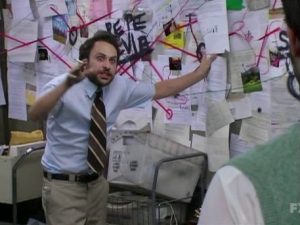 Like earlier “Desolation Row” and “Where Are You Tonight?”, “Mississippi” can’t really be dealt with in one article. Too grand, too majestic, too monumental. And, of course, such an extraordinary masterpiece deserves more than one paltry article.
Like earlier “Desolation Row” and “Where Are You Tonight?”, “Mississippi” can’t really be dealt with in one article. Too grand, too majestic, too monumental. And, of course, such an extraordinary masterpiece deserves more than one paltry article.
